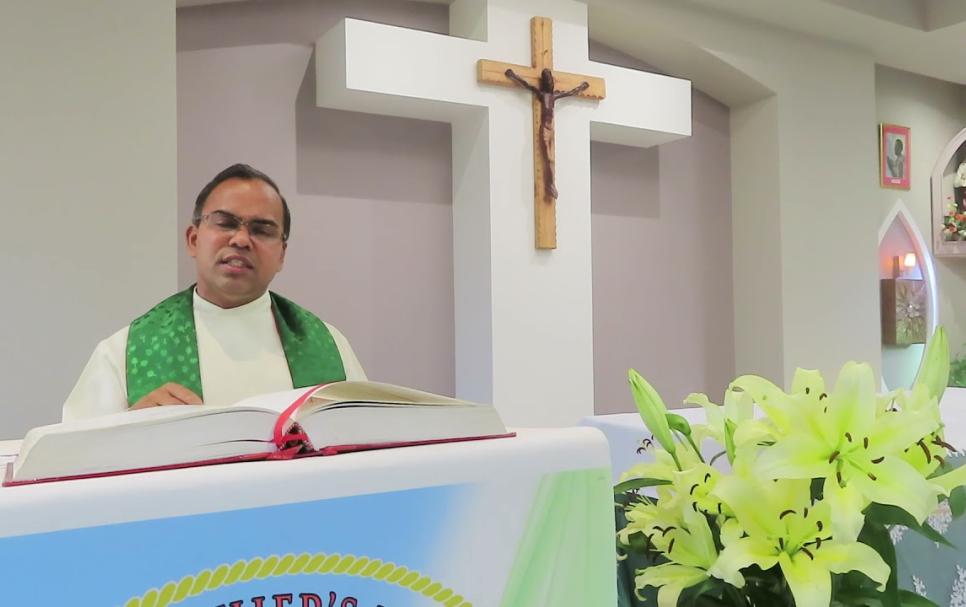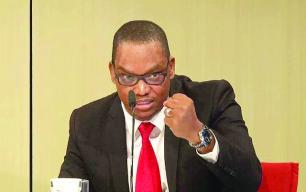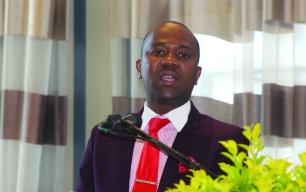Gay Priesthood in Namibia -

Recent reports suggesting that Pope Francis has approved the ordination of openly gay men as Catholic priests have ignited global debate, prompting questions about the policy’s applicability within Namibia.
Dr. Benny Karuvelil, Secretary General of the Namibian Catholic Bishops’ Church (NCBC), clarified the situation, explaining that the official document from the Italian Catholic Bishops’ Conference presents a more nuanced position, consistent with established Catholic teachings.
The reports centre around new guidelines approved by Pope Francis for Italy. These guidelines state that seminary applicants cannot be rejected solely based on their sexual orientation, provided they remain celibate. The document also advises seminary directors to consider sexual orientation as just one aspect of a candidate’s overall personality. However, Karuvelil emphasized that this does not represent a change in policy permitting the ordination of openly gay men, contrary to some media interpretations.
Karuvelil cited the official document, The Training of Priests in the Church of Italy: Guidelines and Regulations for Seminaries, published on January 9, 2025, with papal approval. He stressed that these guidelines focus on seminary admissions, not ordination. The Vatican’s position remains that individuals who actively practice homosexuality, have deeply rooted homosexual tendencies, or openly support what is termed “gay culture” are barred from entering the seminary. The guidelines, therefore, reinforce existing Catholic doctrine rather than introducing a radical change.
“The document does not change the Church’s stance but instead clarifies how seminary candidates should be evaluated,” Karuvelil explained, adding that the Namibian Catholic Church upholds the dignity of every human being and does not condone discrimination based on sexual orientation. He clarified the distinction between homosexual tendencies and homosexual acts. Individuals with fleeting same-sex attractions may be admitted if they commit to celibacy, while those in same-sex relationships or with deeply ingrained tendencies remain ineligible for priesthood.
These guidelines are expected to have minimal impact on Namibian Catholic seminaries, as they primarily apply to Italian seminaries. “There is no new policy being introduced in Namibia,” Karuvelil emphasized, reiterating that Namibian seminaries have always adhered to Church principles, which emphasize treating all individuals with dignity, regardless of sexual orientation.
While this development has sparked global discussions, the Catholic Church maintains its commitment to its doctrinal principles while promoting respect for all individuals. “The so-called ‘new’ policy only reaffirms what the Church has always emphasized: all people must be accepted and respected with dignity as children of God, without discrimination,” Karuvelil added.
When asked about potential societal or cultural challenges in Namibia related to the guidelines, Karuvelil dismissed such concerns. “This is merely an emphasis added to the evaluation criteria for seminaries in Italy. It does not alter the policies of priesthood formation in the Catholic Church. Therefore, even if similar guidelines were introduced in Namibia, they would not bring about any significant cultural or societal changes,” he clarified.
Public reaction in Namibia is mixed. A local Catholic Church member, who wished to remain anonymous, told Confidente that they were unaware of the reports and expressed concern. “If this were to apply to all Catholic churches, it would be unfair because nowhere in the Bible does it state that there are more than two genders, nor does it approve of gay men becoming priests. People should continue living by God’s word, not adding their own rules in favor of new imagined genders,” the individual stated.
Despite these varying opinions, the Catholic Church in Namibia maintains that its teachings on priesthood remain unchanged. The institution continues to navigate the complex intersection of religious doctrine and inclusivity. As debates surrounding LGBTQ+ rights within religious institutions continue, the Church’s position remains consistent: respect for all individuals is paramount, but priesthood remains bound by its long-held doctrinal principles.
- 227 views










Comments